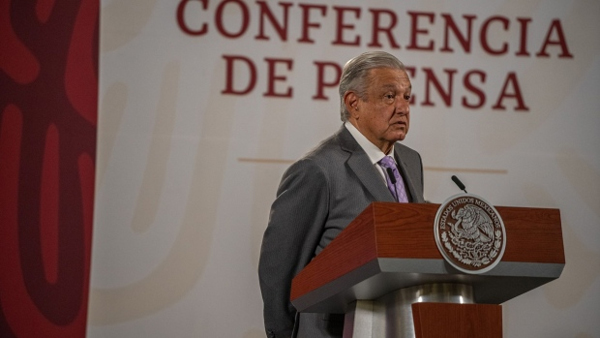
Max de Haldevang and Michael O’Boyle, Bloomberg News
MEXICO CITY
EnergiesNet.com 04 18 2022
President Andres Manuel Lopez Obrador failed Sunday night in his effort to restore state control of Mexico’s electricity sector, falling short of the two-thirds majority needed in the lower house of congress to change the constitution.
Lawmakers voted 275 in favor and 223 against the bill in a session held late on Easter Sunday, after opponents united against the proposal. Its failure gives some solace to a private renewables sector that has come under attack with rule changes to hinder investments since Lopez Obrador took office in late 2018.
AMLO, as the president is known, had sought to use the bill to solidify his nationalist vision for the energy sector and reverse a privatization of the power industry that started more than two decades ago.
The failed bill would’ve given state utility Comision Federal de Electricidad, or CFE, at least 54% of the market, capped private participation and folded independent energy industry regulators into the federal government. He has vowed to send congress a new bill as soon as Monday asserting state control of lithium if the power reform failed.
Critics including industry representatives said the legislation embraced fossil fuels and would cripple the country’s energy future by blocking private investment. U.S. officials including climate envoy John Kerry and Ambassador Ken Salazar had also warned the bill would violate its free trade deal with Mexico and put more than $10 billion in U.S. investments at risk.
Lopez Obrador has made energy central to his presidency, seeking to overhaul the CFE and state oil company Pemex, which has seen production decline and become the world’s most indebted oil firm. He has used his daily press conferences to question the patriotism of opposition lawmakers for siding with foreign companies.
Read More: AMLO’s Power Law Survives Top Court But Key Parts Eroded
Private investment in power projects has slowed to a trickle over Lopez Obrador’s efforts to change the constitution. The bill’s defeat could mark an inflection point that may lead to more investment in the coming years, said Severo Lopez Mestre, an energy consultant and former senior industry official who implemented early reforms to open the power sector to private investment two decades ago.
“If Lopez Obrador can’t change the constitution, no one can. Now, the level of uncertainty will come down,” Lopez Mestre said in an interview. “Mexico will require investment since everything has fallen behind.”
Still, Lopez Obrador’s government could continue to hamper investments. It has declined to renew the contracts of foreign firms such as Iberdrola, miring companies and the state in court battles. Last week, the Supreme Court upheld another law — albeit with key parts weakened — that gave the CFE permission to send electricity it generates to the grid before other cheaper private alternatives.
David Enriquez, a partner at Goodrich Riquelme y Asociados law firm, said legal challenges filed by private companies against that law will continue to be fought in court.
“The injunctions remain in limbo,” he said. “Some collegiate courts can decide in favor of companies, others against, and it creates a dispersal of decisions.”
bloomberg.com 04 17 2022












